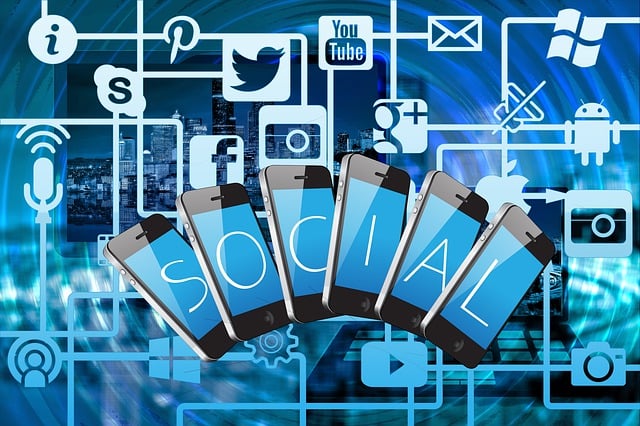In a competitive B2B environment, targeted advertising through event promotion strategies is key. Companies leverage data-driven approaches to segment businesses by industry, size, and interests, ensuring promotions reach decision-makers. Sponsorships amplify brand visibility and engagement, especially at industry events where professionals network. A strategic alignment between organizers' target audience and sponsors is crucial, fostering mutual benefits through tailored packages. Measurable KPIs track lead generation, brand awareness, and engagement, refining strategies for optimal ROI.
In today’s competitive business landscape, effective event promotion strategies are paramount for B2B success. This guide delves into leveraging sponsorship opportunities through targeted advertising to maximize your event’s impact. We explore key aspects, from understanding the intricacies of B2B marketing to crafting compelling packages and measuring campaign success. By harnessing sponsorships, you can foster meaningful connections, enhance brand visibility, and drive profitable partnerships within your industry.
Understanding B2B Targeted Advertising
In the dynamic world of business-to-business (B2B) marketing, targeted advertising is a potent tool to reach and engage specific industry segments. Unlike broader consumer marketing, B2B ads focus on identifying and addressing the unique needs and challenges of other businesses. This precision allows companies to showcase their products or services as solutions, fostering connections with potential partners or clients. By leveraging advanced targeting methods, brands can ensure their messages land in the inboxes or feed of decision-makers within target organizations, enhancing the effectiveness of event promotion strategies.
Understanding B2B targeted advertising involves recognizing that it’s not just about reaching a broader audience but delivering relevant content to highly specific niches. This strategy leverages data and analytics to segment businesses by industry, company size, job roles, and even individual interests. Such tailored approaches make event promotions more impactful as they cater to the specific pain points and aspirations of B2B audiences, fostering genuine interest and driving conversions.
The Role of Sponsorships in Event Promotion Strategies
Sponsorships play a pivotal role in modern event promotion strategies, offering a myriad of benefits for businesses looking to enhance their brand visibility and engagement. By partnering with events, companies can tap into a targeted audience aligned with their target market, thereby increasing brand awareness and reaching potential customers directly. This strategic alliance provides sponsors with valuable opportunities to showcase their products or services, establish thought leadership, and create memorable experiences that resonate with attendees.
Moreover, sponsorships allow for targeted advertising within the event ecosystem. B2B events, in particular, offer a unique platform where industry professionals gather to network and conduct business. By securing sponsorship slots, companies can gain prominence during these gatherings, delivering tailored messages to their ideal customer profiles. This direct engagement fosters stronger connections, paves the way for new partnerships, and ultimately contributes to successful event promotion strategies that yield tangible results.
Identifying Potential Sponsors for Your Event
When it comes to sponsorship opportunities, the key is to think strategically about your target audience and align them with potential sponsors. Event promotion strategies should focus on identifying businesses that directly benefit from or have an interest in your industry. For instance, if you’re organizing a tech conference, look for tech startups, established tech giants, or companies specializing in event technology solutions. Research their current marketing goals, target demographics, and past sponsorships to find common ground.
Networking is also crucial during this phase. Engage with potential sponsors at industry events, conferences, or through online platforms. Build relationships, share your event vision, and explain the mutual benefits of a partnership. Remember, successful sponsorship acquisition often relies on creating win-win scenarios where both parties gain exposure, enhance their brand image, and reach new audiences.
Crafting Compelling Sponsorship Packages
Crafting compelling sponsorship packages is an art that goes beyond simply offering a financial contribution. It involves creating mutually beneficial partnerships by aligning sponsors with relevant event promotion strategies. A well-designed package should offer tangible benefits to businesses, such as increased brand visibility, access to a targeted audience, and opportunities for engagement. For instance, a sponsor could gain exclusive booth space at an industry conference, allowing them to showcase their products or services directly to potential clients.
Additionally, sponsorship packages can include high-profile branding elements like logo placement on event collateral, website banners, and promotional materials. These strategies not only enhance brand awareness but also foster a sense of exclusivity and partnership. By offering diverse and tailored benefits, organizers encourage strategic partnerships that drive engagement and create lasting memories for attendees while simultaneously boosting the sponsor’s return on investment.
Measuring the Success of Your B2B Sponsorship Campaigns
Measuring the success of your B2B sponsorship campaigns is crucial for evaluating their effectiveness and identifying areas for improvement. Utilize key performance indicators (KPIs) tailored to your objectives, such as lead generation, brand awareness, and engagement. Track the number of qualified leads generated through sponsored events, webinars, or industry conferences, and assess how these conversions translate into sales opportunities over time.
Implement robust event promotion strategies by leveraging data analytics tools to monitor website traffic, social media engagement, and attendee demographics. Analyze post-event surveys and feedback to gauge satisfaction levels and the impact on your brand’s reputation within the B2B community. These insights will empower you to refine future sponsorship efforts, ensuring they align with your marketing goals and deliver tangible results.
In conclusion, leveraging sponsorship opportunities through B2B-targeted ads is a strategic move that can significantly enhance your event promotion strategies. By understanding targeted advertising, recognizing the value of sponsorships, and creating attractive packages, you can attract potential sponsors and measure campaign success effectively. This approach not only benefits businesses seeking exposure but also ensures events are well-supported and successful. Incorporating these tactics into your event planning will foster partnerships that drive growth and create memorable experiences for all involved.
